Many remember the days, maybe even weeks leading up to Russia’s ‘special military operation’ – ultimately, the invasion of Ukraine – on February 22, when the Biden administration was echoing the imminent nature of an assault and was eventually putting up precise dates as the alleged day 1. This, and the outsider nature and unexpected charisma of Ukrainian president Volodimir Zelensky shifted the war long before it began. And it was a turning point that made Putin go back two decades in warfare.
Vladimir Putin and Judo – A Pretext
Vladimir Putin is many things. Ex-spy for the KGB, once Boris Yeltsin’s protégé and would-be successor, president of a superpower. Since February 22nd (and maybe since 2014) an aggressor, repressor, and a “pariah on the international scene”, as per the words of US President Joe Biden. One aspect is not mentioned frequently. Vladimir Putin is also a judo black belt. (Albeit stripped of his honorary presidency of the International Judo Federation.) The mention of someone’s hobby might be an unusual start in an analysis of current events, but anyone who has been taken down with a ferocious uchi-mata know that the road to get your black belt in judo – and any other deeply-rooted martial art – is a long and winding one, forging not just the body (due to rigorous training), not just the mind (through the many different techniques taught and applied) but also the personality. Mutual respect, the importance of equality on the mats, in a fight are seemingly long-gone principles (Ukrainian troops are severely outgunned and outnumbered) in the eyes of Putin – naturally, because discarding these, save for respect, are the basis of any action in international politics. But there is one more thing about judo that Putin should have kept in mind vis-á-vis his planned operations inside Ukraine.
Kano Jigoro was very clear about the principles of judo. He laid them down in writing as well and there is one that was conspicuously overlooked by Vladimir Putin, judo black belt and former honorary president of the International Judo Federation greatly and perhaps, this ended up costing him his calculations and preconception about the planned incursions into the Donbas, Southern Ukraine and Northern Ukraine.
As per Kano, the third principle of judo is:
Seize the initiative in whatever you undertake.
What Initiative Did Putin Not Seize and Who Hijacked It?
What Putin really overlooked was the importance of communication, especially now, in the 21st century. While in the Western world, most of us are beginning to understand how important definitions, ways of speech, usage of words are, Putin decided to go old-school. He was slowly but steadily building up forces around Ukraine disguised as military drills, and concentrated solely on the prize he wanted so much: organizing an adequate and total strike on the country he so wishes to conquer, most likely as a satellite state with a proxy government.
This might have taken the focus off the word that is oft-used nowadays, albeit not so much in the context of military action: communication. Because what happened was Putin losing what could be best described as the definitional primacy of his own operations. Granted, the Russian president was very adamant about the invasion being a ‘special military operation’ and there was a very sophisticated-looking riding on international law as casus belli, namely, the protection of newly-acknowledged People’s Republics of Donetsk and Luhansk.
But he missed to seize initiative because US President Joe Biden and his administration were quicker in actually naming a future act and thus they had the opportunity to prematurely educate the public (especially the Western citizens but Ukrainians just as much) on what was coming was indeed an invasion. The American government – while possibly having hints that an attack was indeed imminent – even pointed out a precise day (February 16th, earlier than the actual attack) that was dismissed, even laughed at by Russian foreign ministry spokesperson Maria Zakharova, infamously requesting “mass disinformation outlets of the USA and Britain – Bloomberg, the New York Times, the Sun etc – announce the schedule of our ‘invasions’ for the coming year. I’d like to plan my vacation”. This was nothing more than a PR stunt, in order to further raise awareness that Russia was planning to attack Ukraine, in order to invade it and that it would actually go to war.
I am arguing that this was not a game but the hijack of the power of definition, after which the recognizing the two separatist territories looked like a well-composed but ultimately feeble attempt in trying to regain definitional power. Also, an attempt that found Ukrainian citizens already preparing to salvage their country from the aggressor.
This comes as a surprise after Russia executed a very good example of hybrid, partly (dis)information-based activity in Georgia after the 2008 war. Royal United Services Institute associate fellow Natia Seskuria points out in her paper for the Center for Strategic and International Studies that “[in Georgia] Russia has been quite successful at fueling greater societal divisions by using ‘patriotic,’ nationalist, and anti-LGBTQ+ sentiments in Georgia. The Kremlin seems to have successfully appealed to a segment of society by portraying the West as “evil” and European values as contradictory to traditional Georgian values.” This never worked with Ukraine, definitely not outside Crimea and the separatist regions.
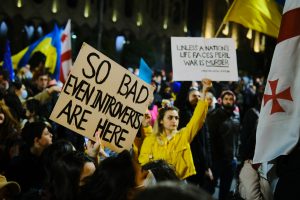
People of Georgia protesting Russian invasion of Ukraine in Tbilisi. Photo: Nikita Babenko / Scop.io
In The (Yellow-)Blue Corner: Charisma
Having been provided an interpretation framework of the acts of Russian forces, thanks also to the state of play on the ground (and the assistance of Western press as a whole), the Ukrainian administration was already in a good position before the war broke out. These were all exacerbated after the attack but one actor was very quickly built up and took their place among the key figures very well : Ukrainian president Volodymyr Zelenskyy. Having been an actor before his stint as politician (incidentally playing the president in a TV series) and a political outsider (even after winning the elections), he clearly knows how to work his charisma and presence in order to win sympathy and support. Being a president of a country at war, on the innocent side, is already possibly the strongest cause in favour of the Ukrainian premier but there are techniques and methods that reinforce this: daily video announcements, emphasizing not leaving Kyiv are all important in this regard.
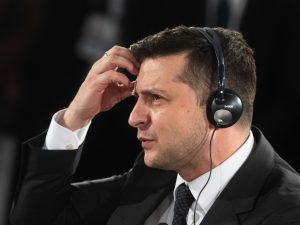
MUNICH, GERMANY – 15 Feb 2020: President of Ukraine Volodymyr Zelensky during Munich Security Conference. Photo: Mykhaylo Palinchak / Scop.io
Two definite standouts and good examples of Zelenskiyy’s prowess when it comes to this odd PR were his speech directed at Russians in Ukraine and a photo with Ukrainian defense minister Oleksiy Reznikov that ended up as a comparison.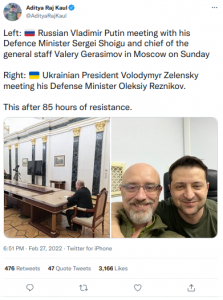
The speech was very moving and very well-delivered. Although it was directed at Russians, the Ukrainian leaders never expected it to reach Russians in Russia, but it was a very grand gesture and proof of humility towards Russian people living in diasporae but also – having been already subtitled in English – towards the Western public.
The photo, especially when displayed beside the one taken in Putin’s office, is a very catchy way of stating the friendliness and camaraderie found in the administration of Ukraine. The very high engagement can also be seen under the tweet.
During The Initial Stages of the War
Communication remained the same during the early stages of the war. Thanks to the sympathy of Western media outlets, as well as a good dissemination of information viewers and readers could get a clear picture of Ukraine clearly just defending itself: there was detailed reporting on how the public was informed by the authorities about what to do in emergencies and danger (going so far as showing people how to make Molotov cocktails) and there were mentions of Ukrainian authorities emphasizing the unreliable, even fake nature of any and all future Russian reporting and announcements right from the start. This further helped the Ukrainian side maintain its advance on interpreting the events on its own terms. Another very important feat is that the public in Ukraine is a very good partner in this. In the first phase of the conflict, in terms of international opinion, the Ukrainians are clearly ahead in information,” said Baptiste Robert, founder of Predicta Lab, a French company fighting disinformation.”The most impressive thing is that it is organic,” he said. “There is a real desire of the Ukrainians to document this war. When something happens, they pull out their phones” the expert added when asked about the present state by France24.
In the beginning of March CNN correspondent Jill Dougherty stated on air that the attack on Ukraine was a “Soviet-style attack”. This remark was intended to underline the seriousness and terrible, cruel nature of the proceedings but I would say, on the other hand, it could have underlined a positive side of it all: Russia – at least right before and right after starting the war – was forced back into 20th century warfare, without all the advancements of the 21st, namely information warfare.
The early stages of communicating about the war was defined by the Ukrainian side, having been aided by Western media outlets and the US administration. Putin’s plans of displaying the attack on the country as some sort of preemptive measure in defending Russian minorities and keeping peace in the Donbas was clearly thwarted by having been hijacked of the definition power.
Information Warfare in the Later Stages
There was a sentiment among analysts that the momentum could shift in Russia’s favor and that this disadvantage could be overcome. As CSIS deputy director Emily Harding told France24, “I can see them (the Russians) readjusting, refitting, and trying again” on the information front. She added that she expected Russia to “push a lot of disinformation into the ecosystem about how the war is going, showing Ukrainian troops supposedly surrendering”.
The situation however did not change on this front onward. After more than 70 days the Ukrainian side still seems to be holding up: Russia’s information warfare in the Euro-Atlantic space (in terms of communication) is still pretty inadequate, and without a resounding influence on Ukraine or the Western public. The sanctions may have hit Russia’s economy and foreign trade hardest, uniform Western reactions concerning media outlets and Russia-sourced information, for example rendering RT, the state-funded linear and online television channel a pariah helped a great deal in hindering Russia’s disinformation machine. Not so much in the non-Western world however. Carl Miller argues in The Atlantic that Western information space is not as universal as many think it is and that Russia can expect (or plant the seeds for) some solidarity, for example in the other BRICS nations, Brazil, India, China and South Africa. Certain nations in the Far East (Malaysia, Singapore) seem to have been targeted in an excessive manner. Various TikTok accounts echoing Russian propaganda have been reported and because TikTok was not very well prepared to counter fake news in the early stages of the war, it seems to have become one of the most important platform when it comes to spreading pro-Russia content.
The other side of the argument that Russia is incapable of spreading disinformation is the Ukrainian public. Minister for digital transformation Mykhailo Fedorov said to WIRED that the main difference has been that the Ukrainian public was very well prepared for Russia’s alleged information campaign. “We have had eight years [to prepare for this]”, Fedorov referenced the disinformation campaign of Russia before the 2014 annexation of Crimea. The constant supply of what to do and the very easily comprehensible message of “Don’t believe anything Russia says” were very effective messages that undoubtedly got through.
Lessons learned
Naturally there are countless other facets of the war in Ukraine but when it comes to winning the public over in an issue whose output definitely curbs the interests of an other side, so when it is at least about a zero-sum game, definitional power, the opportunity to shape the basic elements of a narrative are paramount to both sides. This should be done in a timely manner and on as many forums/platforms as possible.
In future conflicts, another very important aspect is that there might be geographical regions and actors who are not directly linked but have a very high capability of economic/political intervention. In the case of the war in Ukraine, China is definitely one of those but so are the countries outside the transatlantic region that Russia is aiming to influence – no matter if based on a sort of trial-and-error attempts or if there already was a plan in motion. This geographical diversification is made more and more possible as communication technology advances.

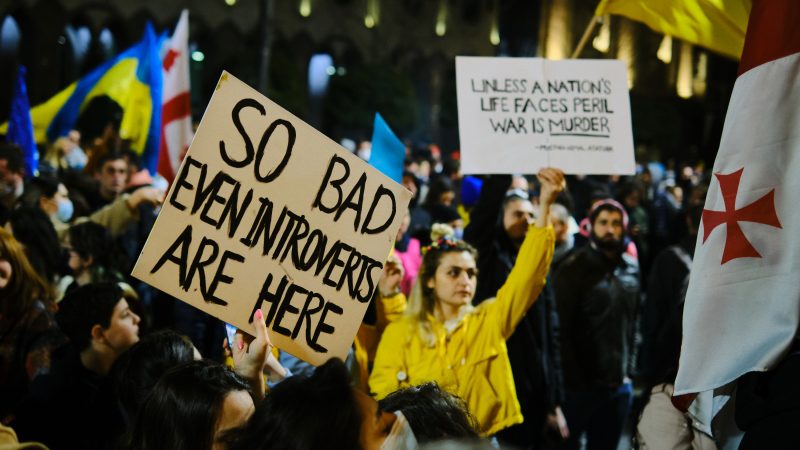
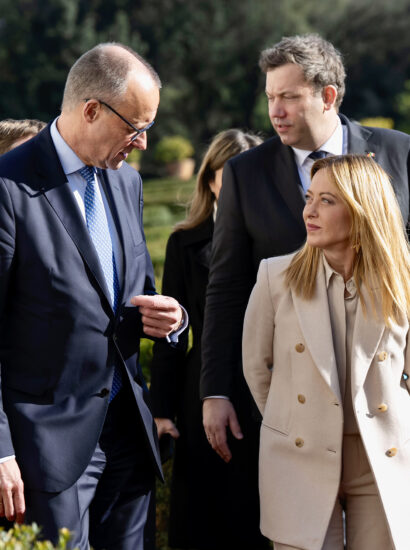
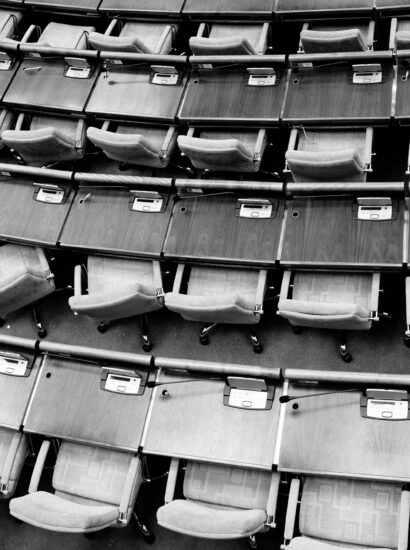
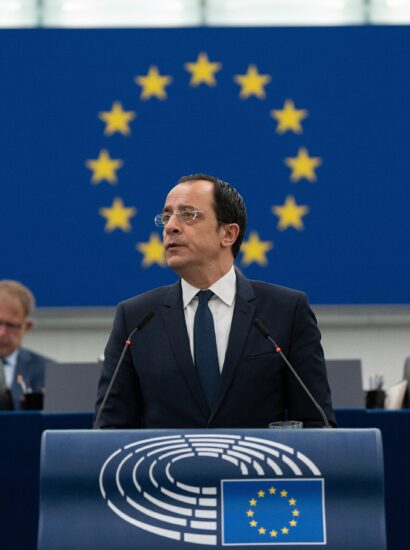
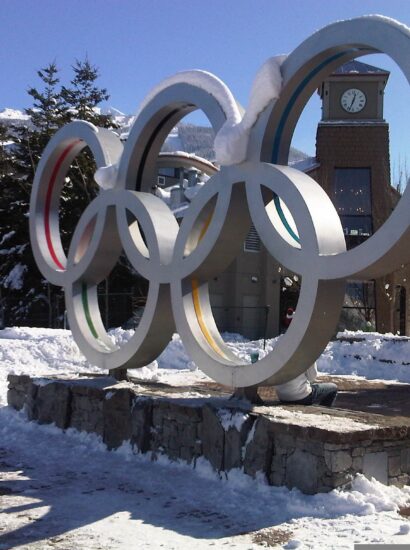


[…] light of Russia’s past misrepresentations about its military activities during its invasion of Ukraine, I view Russia’s assertions with skepticism. Moreover, as someone […]
[…] conflict will end with the defeat of Russia, they do not have the right narrative, the necessary logistics, the right allies or the proper combat morale of their soldiers. All […]
[…] the Russian invasion of Ukraine, transatlantic relations strengthened significantly. Especially at the easternmost point of […]
[…] the invasion of Ukraine, the Russian military has become one of the most popular topics in recent years. Although these […]
[…] On American broadcaster CBS’s political interview program 60 Minutes, the Ukrainian president touched upon the counteroffensive, military losses, and Russian president Vladimir Putin whom he referred to as “a new Hitler” and actually blamed “Russian society” for lifting him into power. According to Zelensky, Russian people “have lost the respect of the world.” This was definitely something new, considering how pinpoint and cautious, yet direct Ukrainian communication has been, even from the very beginning. […]
[…] and find a way to connect themselves to it. Simply finding a bigger narrative is not enough – political leaders must be compelling characters within their […]
[…] of the relationship between capitals and European institutions. The US found Poland’s stance in Russia’s war to be more important than issues regarding democracy and rule of law. It resulted in cooperation in […]
[…] of Social Democrat Chancellor Willy Brandt. This clearly ended on February 24th 2022. Putin’s attack on Ukraine also shattered the fruitful German-Russian economic trade […]
[…] examining the ways in which deepfake videos were presented and discussed on Twitter during the early months of the Russian invasion of […]
[…] in Syria, fighting for the PKK. He travelled to Ukraine days after the full-scale invasion started in 2022 and arrived in March. He flew to Poland and then took a bus into the country. This was a […]
[…] and serve just one term as president. The world turned upside down with the Russian full-scale invasion on February 24, 2022. Zelensky’s presidency is about to end in a bare month, on May 20, and now […]
[…] apparently) to influence what the public sees and thinks about their country. Two years ago, after Russia launched its attack on Ukraine, the whole world was shocked when stories about the occupying Russian troops circulated […]
[…] if they don’t agree with the decision to invade Ukraine, the majority of Russians accept the government’s narrative – that the West […]